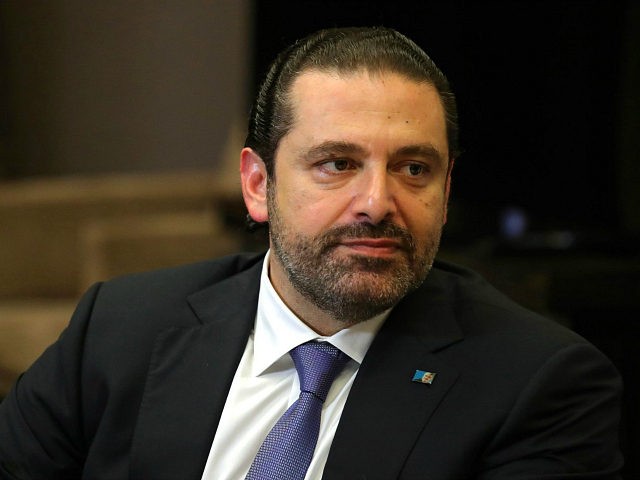Citing a dozen “Western, Lebanese, and regional officials and associates” of Lebanon’s Prime Minister Saad Hariri, on Christmas Eve the New York Times published an account of Hariri’s resignation (and later un-resignation) that asserts he was forced out of office by Saudi Crown Prince Mohammed bin Salman as part of Saudi Arabia’s cold war against Iran.
According to the New York Times account, Hariri was “stripped of his cellphones, separated from all but one of his usual cluster of bodyguards, and shoved and insulted by Saudi security officers” on his second day in Saudi Arabia’s capital of Riyadh in November. He was then “handed a prewritten resignation speech and forced to read it on Saudi television.” He wasn’t even allowed to visit his house in Riyadh to pick out a suit for his resignation.
The general reason for Hariri’s forced resignation was Saudi displeasure over his accommodations with Hezbollah, the Iran-backed terrorist militia that has grown into one of the strongest political and military factions in Lebanon – a virtual “state within a state” in the eyes of many analysts. Hariri argued that Hezbollah was too powerful to be marginalized as the Saudis wanted, but evidently Crown Prince Mohammed wasn’t buying his excuses.
Several potential “last straws” are mentioned in the NYT article, including praise for Lebanon’s cooperation from an Iranian official and fiery denunciations of the Saudis and their new crown prince by Hezbollah leader Hassan Nasrallah.
Whatever it was, the upshot was that Hariri was summoned to Riyadh for an emergency meeting, forced to wait about seven hours for Mohammed bin Salman to show up, marched to an early meeting the next morning after MBS was a no-show, and treated so badly by the Saudis that he appeared to be traumatized by the experience. The Times was unable to obtain a definitive answer on the question of whether Hariri was effectively under house arrest in Saudi Arabia – a question that preoccupied Lebanon throughout November – but all sources agree he was under enormous pressure during his stay in Riyadh.
Another lingering question is exactly what the Saudis hoped to accomplish by forcing Hariri to resign. A number of theories are floated in the NYT piece, ranging from MBS hoping to inspire a popular uprising against Iran and Hezbollah by compelling Hariri to claim he felt his life was in danger, to alarming scenarios in which the Saudis were hoping to provoke civil unrest in Lebanon.
Most of the Times’ sources portray Crown Prince bin Salman as ham-fisted in his approach and ignorant of how Lebanese politics work, although the punch line is that he does seem to have gotten something out of the Hariri misadventure, because Hezbollah has toned down its anti-Saudi and anti-MBS rhetoric, and even called for peace in Yemen. Hariri stated that one of the conditions for his return was Hezbollah withdrawing from some of the foreign conflicts where Iran has been using it as a proxy army.
On the other hand, Hariri is firmly back in office, which makes the Saudis look weak, and Hezbollah is stronger than ever. The resignation saga seems to have annoyed or alarmed virtually every country in the Middle East, the United States, and Europe. Only the Saudis, and particularly their uniquely aggressive and powerful crown prince, can say for certain if the political and strategic gains were worth the price they paid.

COMMENTS
Please let us know if you're having issues with commenting.